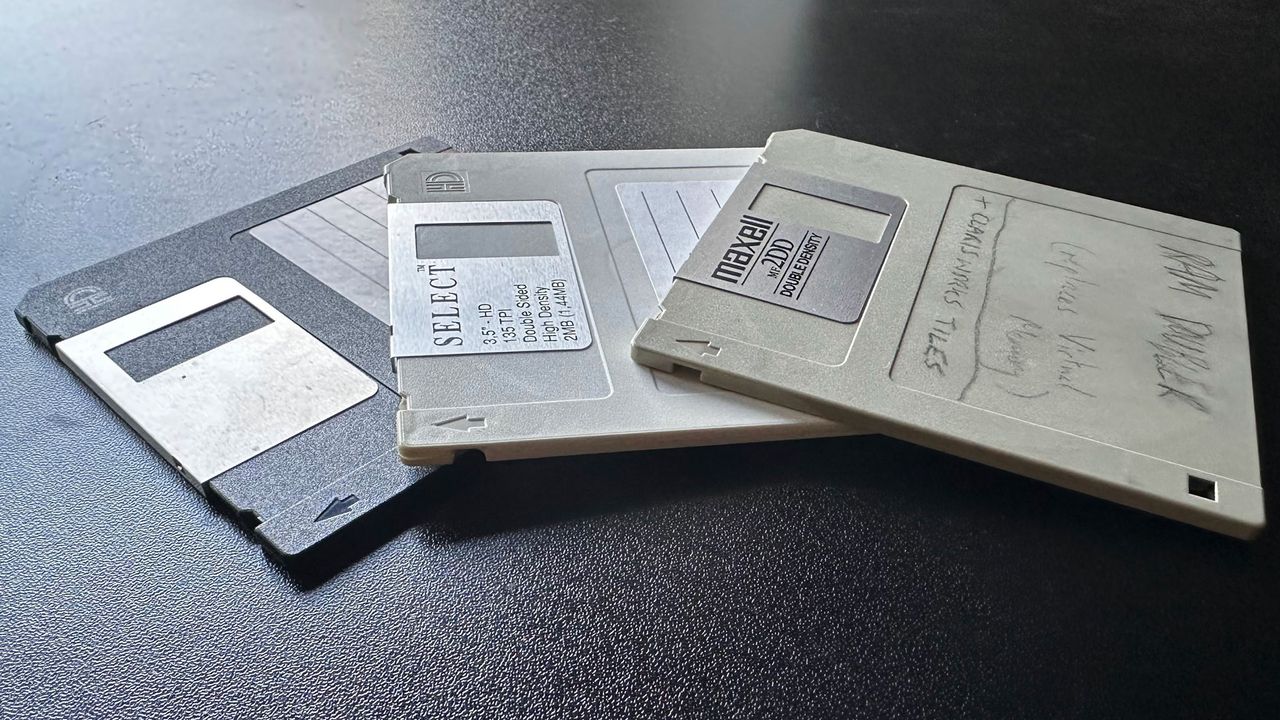
A prisoner incarcerated at the New Jersey State Prison has written about the trials and tribulations of corresponding with his legal representatives while being shackled by ancient computer technology. Namely, floppy diskettes.
Jorge Luis Alvarado, writing for the PJP (Prison Journalism Project), says it is difficult to keep abreast of developments in his case due to a prison-imposed digital divide. Alvarado’s lawyers send documents on flash drives, which must be decanted to (sometimes multiple) floppy disks on a special computer in the law library. Getting library computer access can take days, and time can be crucial during legal appeals.
The prison allows inmates to have up to 20 floppy disks in their cells, but no flash drives.
“Inside New Jersey State Prison, it’s like 1985, where we rely on out-of-date word processors, electric typewriters and floppy disks that are going extinct in the free world,” laments Alvarado in his opinion piece, recently published by the PJP. While we can understand why prisons don’t have the latest computer technologies at the disposal of every inmate, the preference for floppy disks over flash drives seems kind of arbitrary.
We’d say the general public’s use of USB flash drive technology became mainstream 20 years ago. Their ascendancy neatly crosses over the removal of the humble floppy drive as a standard component of a pre-built PC.
Moreover, any advantages USB flash drives had over floppies 20 years ago have scaled dizzyingly new heights of usability. Now flash drives are faster, more capacious, and extremely affordable. They are even sold in multipacks – not quite up to a common 50x or 100x pack like floppy disks, but people don’t need so many.
Capacity and reliability woes
Alvarado underlines the issues with floppy disks in 2025 from his personal point of view. “A single legal brief can easily take up the memory of two floppy disks,” he complains. Remember, PC HD floppy disk capacity was only up to 1.44MB. For better capacity removables in the floppy era, you would have to invest in more expensive media like Zip disks or SyQuests. The great home PC CD writing boom would occur around the year 2000.
Another issue Alvarado has with floppies is that “floppy disks also get corrupted easily.” Lessons learned the hard way mean prisoners will need to make backups among their limited floppy disk supplies. The PJP author also notes that floppies are inherently circling the plughole, as no company has been producing new media since 2011. Indeed, Sony shut down its floppy production lines in that year.
Some will argue that prisons shouldn’t have all the latest computer technologies available to inmates. However, that has to be balanced by allowing those behind bars sufficient resources to advocate for their freedom. Some studies suggest that between 4 and 6% of those incarcerated in US prisons are innocent.
Follow Tom's Hardware on Google News to get our up-to-date news, analysis, and reviews in your feeds. Make sure to click the Follow button.







